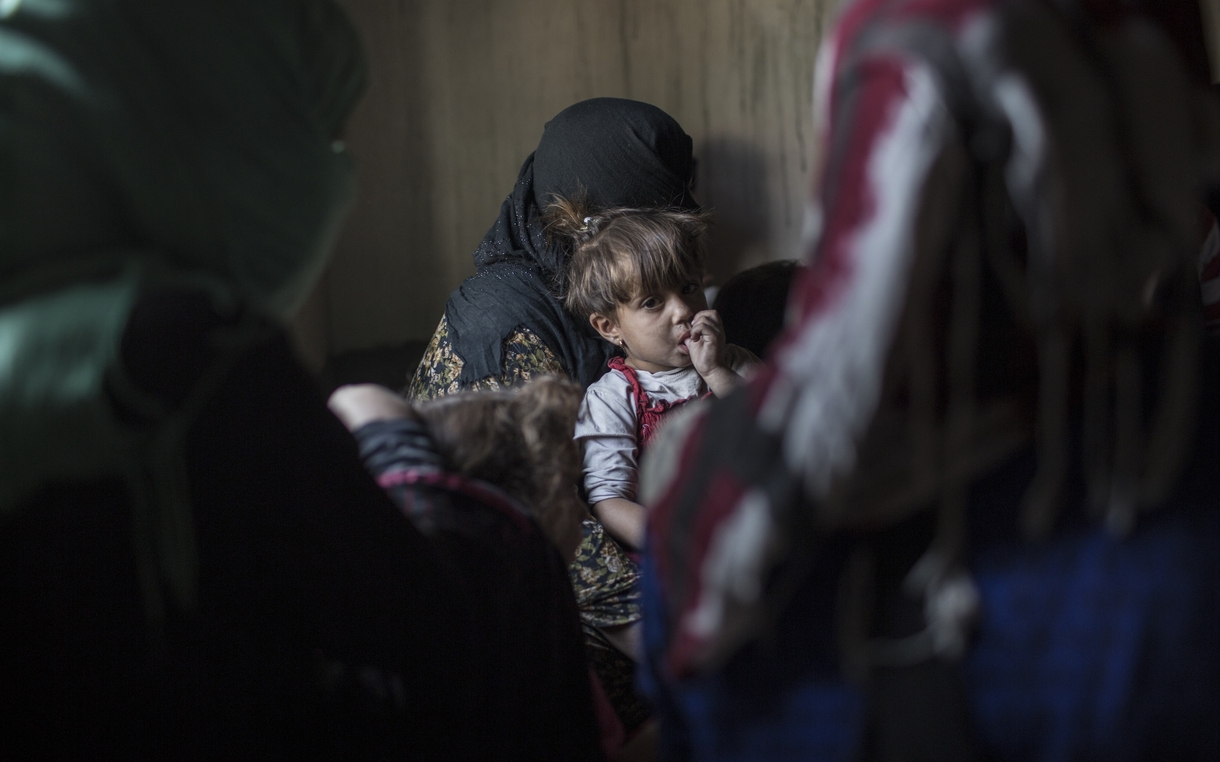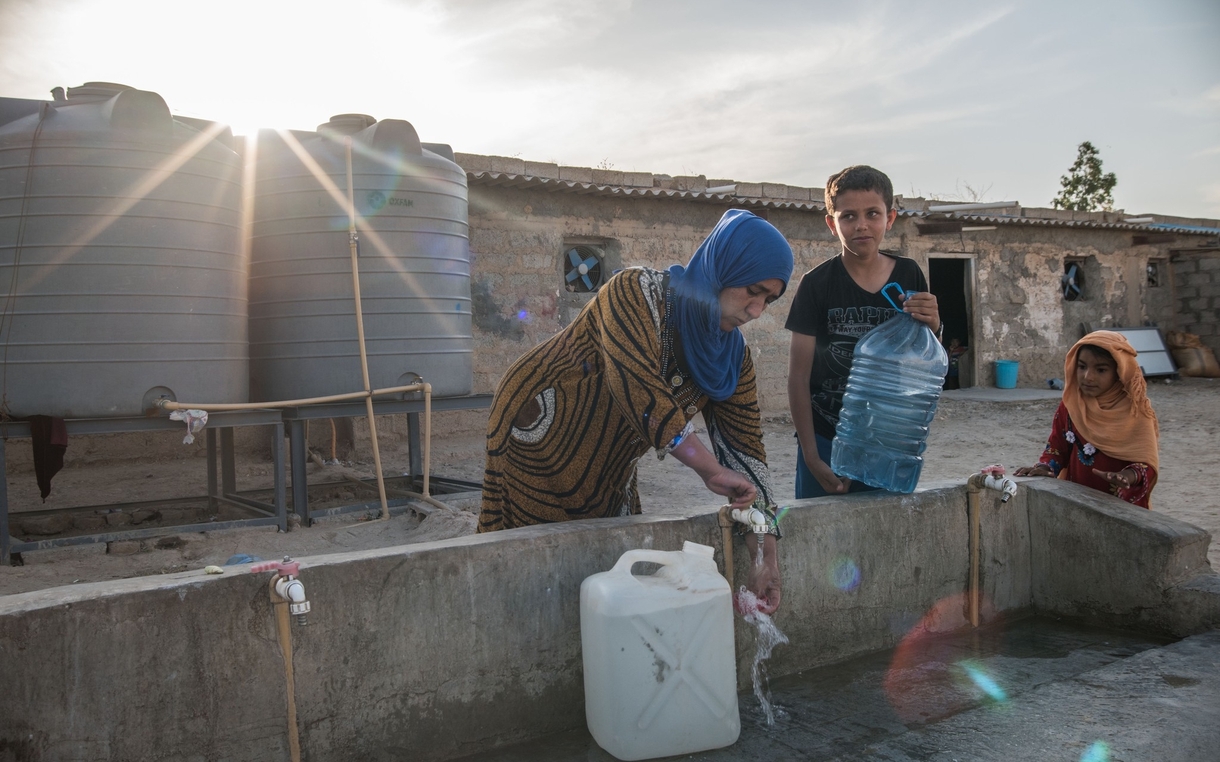Hundreds of thousands of Iraqi civilians are at risk of being caught in the crossfire of a new offensive now underway on the city. For many, the day-to-day challenges of life in Iraq are about to get worse.
Since June 2014, Iraq’s second most populated city—Mosul—and its surrounding areas have been under the control of the Islamic State of Iraq and the Levant, or ISIS. About a million people inside the city are now living under ISIS rule. In March of this year, the Iraqi-led security forces began an offensive in the southern Mosul corridor with the goal of reclaiming control.
What does all of this mean for countless Iraqi families who have endured so much violence already?
5 million children need humanitarian aid

More than 10 million people—half of whom are children—are in need of humanitarian assistance in Iraq. Some of them have been living in villages like Imam Gharbi, which is about 70 kilometers south of Mosul, and had been under the control of ISIS until August when the Iraqi army retook the community.
As the offensive to recapture Mosul and surrounding areas moves ahead, aid workers fear that as many as a million more people could join the 3.4 million Iraqis who have already been displaced.
Oxfam is scaling up to reach 60,000 people with an emergency response by March 2017. Since 2014, we have been working in 50 villages and town across Diyala and Kirkuk governates helping to support families who have fled ISIS and the military operations against it.
Without clean water, cholera threatens

Even before the current crisis, one in five Iraqis did not have access to clean water. The fighting has made things worse, leaving infrastructure in ruins: Some families have been forced to use the water from irrigation channels for drinking, bathing, and cooking.
Iraq has endured numerous cholera outbreaks—in 2007, 2008, 2012, 2013, and 2015. A deadly waterborne disease, it poses a serious threat in areas where families have limited access to clean water and sanitation services.
Oxfam will be working to provide safe water for families in immediate need as well as focusing on longer-term rehabilitation of the water infrastructure in some communities. We will be distributing bottled water and plan to start trucking water to some communities. We will also install storage tanks and distribute jerry cans so families can have continued access to clean supplies of water. In addition, we will be digging emergency latrines, building bathing facilities, and distributing hygiene kits to families to help prevent the spread of disease.
For families, things will get worse before they get better

For families who have been living under ISIS control, the situation is likely to get worse before it gets better. The conflict has destroyed homes, schools, and businesses, leaving people without the means to make a living. When people don’t have money, markets can’t function: many families don’t have enough to eat and the price of foods is out of reach for some.
Families fleeing ISIS often escape on foot, arriving in new places with few or no possessions. A third of the families now living in camps report that they have exhausted all their savings, leaving them dependent on the limited assistance distributed in the camps.
Because facilities in the camps are poor, it’s estimated that as many as 90 percent of families on the move are choosing to flee to host communities. Unpredictable patterns of movement are making it challenging for aid groups to help meet the needs of families.
The small village of Tinah, for instance, has become a gathering point for people fleeing from fighting in the surrounding area. Tinah is located near the city of Qayyarah, about 80 kilometers south of Mosul. Both the village and Qayyarah were reclaimed by Iraqi-led security forces in late August. Now, people are living in tents around Tinah as well as being hosted by villagers.
Water and sanitation services are among people’s most urgent needs there. In mid-September, Oxfam and its local partner were able to make a quick distribution of jerry cans, wash basins, and blankets for more than 250 households.
Millions of refugees—many of them children—are seeking security in the Middle East and beyond. Oxfam is helping people get the essential supplies they need and working to provide clean water and sanitation to protect public health.
